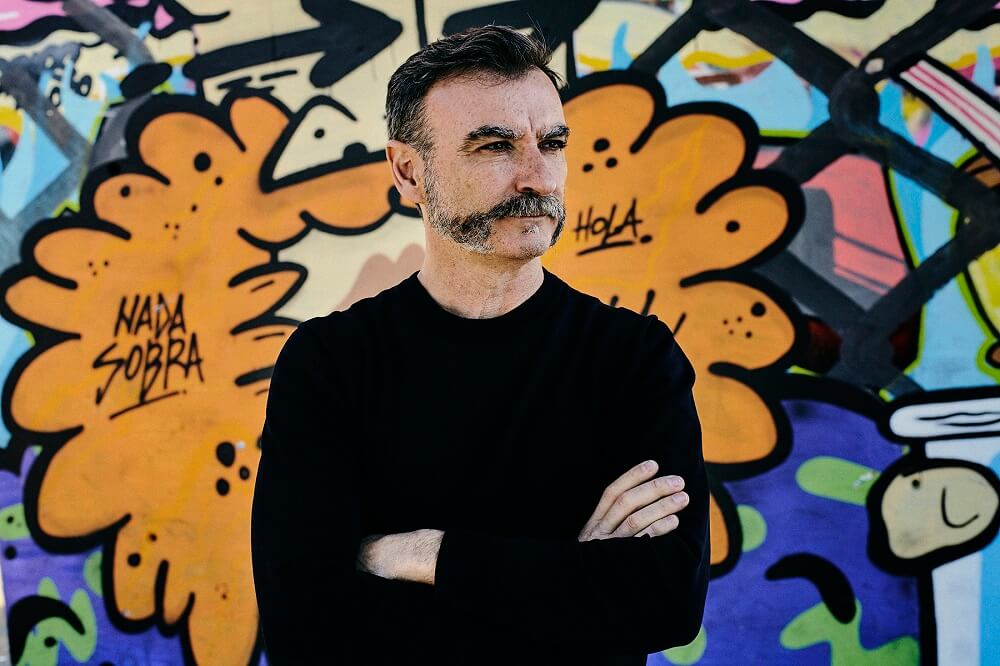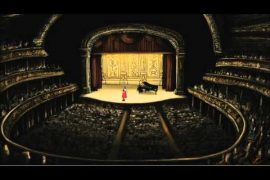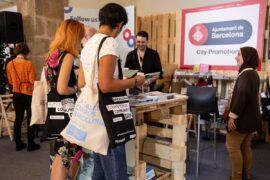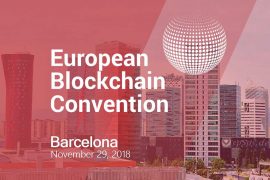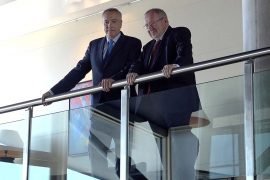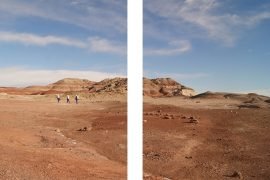When the days begin to get longer, local music lovers start to keep an eye out for the major outdoor festivals that decorate the landscapes of our lives. This calendar begins with Primavera Sound, which will occupy Barcelona’s Fòrum from the 30th of May until the 2nd of June with more than 160 artists on the line-up. Alberto Guijarro is one of the four co-directors of Primavera, which is celebrating its 18th anniversary this year and therefore its official entry into adulthood!
Beyond the headliners like Björk, The National and Arctic Monkeys, what other facet of this year’s programming would you highlight?
We are continuing to make an effort to have more Black music at the festival: more hip-hop, more R&B, more neo-soul… We think that it’s worth it because it’s the way to attract a younger audience. For the past three years, we’ve noticed that twenty-some-year-olds are coming, even though we hold the festival in the middle of exam time, and this is a problem for this group: we noticed it in the social media when we announced the line-up for 2018 [laughter]. Now our audience is fairly well divided in terms of age: approximately 33% of the people are aged 18 to 25, 33% are aged 25 to 35, and 33% are aged 35 and older. We think that’s a great balance.
The first edition of the festival, which was held at Poble Espanyol, attracted 7,000 people. You’ve been at the Fòrum since 2005, and last year more than 200,000 people attended. Are you getting close to a ceiling in this growth?
This year we have increased the capacity by around 5,000 people per day, but yes, the characteristics of the space mean that we are getting close to topping out. In fact, in 2012 we began to hold the Nos Primavera Sound in Porto precisely in order to lighten up Barcelona a bit. We aren’t interested in more people for people’s sake. We are more concerned with comfort and offering a programme in which we ultimately can tell that there are two festivals. There is an audience segment that is really only interested in headliners, and another which is more interested in smaller stages and discovering new things. And now we’re creating a third profile, which we have been pushing since last year: electronic music.
Looking back a bit, we’ve seen African, Flamenco, Catalan, Brazilian, experimental and contemporary music concerts at Primavera. They’re not exactly obvious genres for a large festival.
It’s true that we started with a very specific scene, but we immediately understood that we could not remain pigeonholed there, that we had to open up. And I think that the audience has come with us, even though we were criticised at some points. I remember that the year we brought Wilco and Devendra Banhart to Poble Espanyol someone told us that the festival “had a whiff of patchouli”, that is, it was too hippie, but ultimately everyone ended listening to these artists. And then there were the people who were up in arms because we brought Lluís Llach. I think festivals should be a bit risky and provocative. And like I said, the audience keeps responding. This can mainly be seen with the newer generations. Young people listen to a few pop rock songs, a few hip-hop songs… They’ve broken down the stylistic barriers, and the time barriers, too: sometimes they listen to the Doors even if they’re not quite sure what period they’re from. They don’t care and enjoy it anyway.
A little over half the people attending Primavera are from abroad. How do you explain this?
We think there are two reasons. The first one is the programme. We’ve noticed that it is quite internationally prestigious among the media, professionals in the sector and the artists themselves. Here’s a story: this year we’re bringing Jane Birkin, and in an email thread which accidentally came from her office we read a conversation between her agent and manager saying: we have to go to Primavera because it will open doors for us. Jane Birkin! It is important for many musicians to come to the festival. The other reason, obviously, is Barcelona. This is not a festival where you camp out for three days without leaving the premises. Coming to an urban festival in a friendly city with a great climate and the opportunity to walk around and do some sightseeing, or going to the beach, is also a factor in its success.
How does the festival impact the city?
The latest study we have is from a few years back, and it talks about an impact of more than eleven million euros, calculating the mean expenditure of each person attending on accommodations, food, transport etc.
And I’m sure there’s an intangible impact, too. I wonder if the initiatives you’ve been starting over time like Primavera als Bars, Primavera als Barris, Primavera a Casa Teva, free concerts and others are more intangible.
Look, we began to do all these things outside the venue so we could feel like a part of the city’s scene. To reinforce the small venues, to give a chance to the unsigned bands, to support the work done by the neighbourhood cultural centres, to show different places in the city and different ways of enjoying music… This makes us feel at home and allows us to provide a home. If you want, afterwards we can develop a social discourse which is fabulous, but this was the first impetus.

